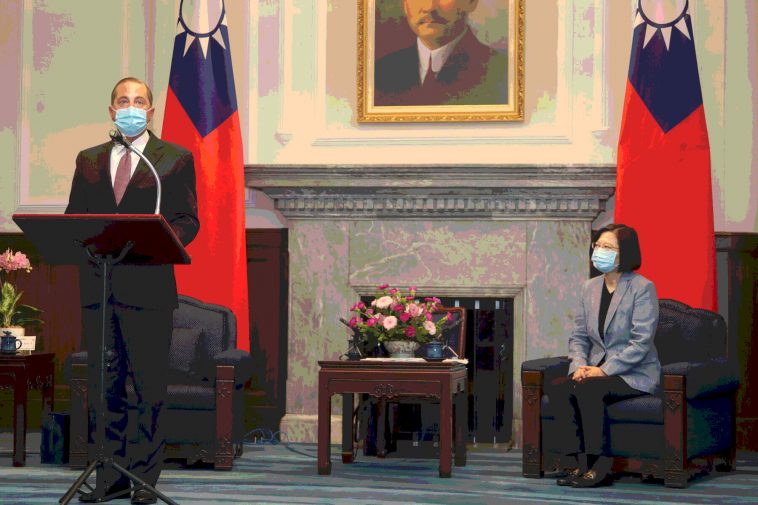Health and Human Services Secretary Alex Azar met with Taiwanese President Tsai Ing-Wen Monday morning, marking the most prominent meeting between the two nations in decades, The Hill reported.
The visit “demonstrates the robust U.S.-Taiwan partnership on global health and health security, one of the many aspects of our comprehensive friendship,” Azar said, according to CNN. “We consider Taiwan to be a vital partner, a democratic success story, and a force for good in the world.”
Azar said the meeting was to discuss “three overarching themes:” Taiwan’s successful response to COVID-19, reaffirming the nation’s strong ties to the United States and Taiwan’s role as an emerging leader in global health, The Hill reported.
Taiwan, an island nation of 23 million people off China’s eastern coast, has recorded only 480 coronavirus cases and seven deaths, according to a Johns Hopkins University database.
China, which does not recognize Taiwan as its own country and blocked the nation from becoming more involved with the World Health Organization after its warnings about the coronavirus were ignored, condemned the meeting, calling it “highly regrettable,” The Hill reported.
“China firmly opposes any official interactions between the U.S. and Taiwan. This position is consistent and clear. China has made stern representations with the U.S. side both in Beijing and in Washington,” Chinese Foreign Ministry spokesman Wang Wenbin said last week.
China considers Taiwan one of its territories under the One China Principle.
President Donald Trump has blamed China for the coronavirus’s spread to the United States and ordered the Chinese consulate in Houston to be closed last month. China closed the U.S. consulate in Chengdu three days later in response, The New York Times reported.
China also sanctioned 11 American officials Monday morning, including four senators and a representative, in response to their outspoken opposition to its actions in Hong Kong, the Associated Press reported.
“The relevant actions of the U.S. blatantly intervened in Hong Kong affairs, grossly interfered in China’s internal affairs, and seriously violated international law and the basic norms of international relations,” said foreign ministry spokesman Zhao Lijian during a daily briefing.




